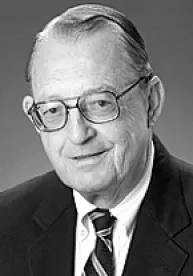The Federal District Court for the Central District of California, sitting in Santa Ana, recently dismissed antitrust claims in an action between competitors in a market described as the management and distribution of “photographs in rich media content for hotels.” As described in the first amended complaint, a hotel wishing to advertise or distribute visual or “rich content” through an online travel agency must use an intermediary, described as a “Global Distribution System” (“GDS”) or “Pegasus”. Plaintiff Pro Search alleges that defendant VFML violated Sections 1 and 2 of the Sherman Act by entering into exclusive dealing agreements with all of the GDS companies, as well as an exclusive dealing agreement with Pegasus. There are four GDS in the alleged geographic market. The contracts with GDS and Pegasus are alleged to constitute the “core of VFML’s monopoly.” Pro Search claims that it has been excluded from accessing the GDS and Pegasus, which are described as “essential intermediaries in the industry”. Pro Search alleges that VFML has a relevant market share of approximately 80%. The court dismissed the Sherman Act claims with leave to amend. Pro Search Plus, LLC v. VFM Leonardo, Inc., U.S.D.C., Central District of California, Case No. SACV 12-2102-JST (ANx), July 30, 2013.
After the now common commentary on Bell Atlantic Corp. v. Twombly, and Ashcroft v. Iqubal, the court dismissed the exclusive dealing allegations on the ground that the first amended complaint failed to allege sufficient facts to plausibly demonstrate that the effect of the exclusive dealing arrangements was to “foreclose competition in a substantial share of the line of commence affected”. The court noted that the duration of the contracts in issue were two to three years for the GDS contracts, and five years for the Pegasus contract. In addition, the contracts were subject to termination upon notice ranging from 30 days to 12 months, to 10 days’ notice plus a termination fee. The court held that the contracts were “of short duration and easily terminable”. Accordingly, the allegations could not state a claim upon which relief could be granted.
The court noted that the case law generally supports the proposition that exclusive contracts of short duration that are readily terminable do not run afoul of the antitrust laws. Citing Areeda & Hovenkamp, the court noted that “even an exclusive-dealing contract covering a dominant share of a relevant market need have no adverse consequences if the contract is let out for frequent rebidding.”
Not discussed, however, is the analysis of what “short duration” and “readily terminable” may mean. Bereft of context, it is difficult to posit an analysis based on the imprecision of these terms. In essence, the question “how long is a piece of string” is not totally inapposite. It points to the importance of having context in which to evaluate the likelihood of competitive foreclosure sufficient to raise antitrust concerns.
For example, in Standard Oil Co. v. United States, 337 U.S. 293 (1949) (“Standard Stations”) the Supreme Court devised what has become known as the “quantitative substantiality” test. This test measured whether the foreclosure of competition was “substantial” by focusing almost entirely on the percentage of the relative market foreclosed to competing suppliers by virtue of the exclusive dealing arrangement. This would seem supplied in the case at bar, where the allegations are that the combined market share of the defendants approached 80%. In the Standard Stations case, a market share of 6.7% was found to be “substantial,” in the context of the aggregate use of similar exclusive dealing contracts in the industry by competing suppliers of relatively homogeneous goods. On that basis, the aggregate market foreclosure was 65%.
However, 12 years later in Tampa Electric Co. v. Nashville Coal Co., 365 U.S. 320 (1961), the Supreme Court found that the 20 year requirements contract in issue did not sufficiently foreclose competition, where on a “qualitative substantiality” basis, the agreement foreclosed just 0.77% of the relevant market. The Court noted the need “to weigh the probable effect of the contract on the relevant area of effective competition . . . and the probable immediate and future effects which pre-emption of that share of the market might have on effective competition therein.” 365 U.S. at 329.
More recent cases have discussed a “comfort level” from 30 to 40 percent.See Jefferson Parish Hosp. Dist. No. 2 v. Hyde, 466 U.S. 2 (1984). In addition, there has been substantial commentary that exclusive dealing contracts of a period of one year or less are presumed lawful, while anything longer will be a function of competitive impact and permeability. The rationale of the “short duration” commentary seems to be that where the plaintiff can readily challenge the exclusive dealing arrangement by offering better terms and conditions to the contract partner subject to exclusive dealing, there can be no injury either to a competitor or to the competitive process. Thus, there will be no “antitrust injury”.
What we cannot tell from the order granting the dismissal of the exclusive dealing claims here, is how the exclusivity arrangement happened to occur in the industry, who caused it to be implemented, and whether the plaintiff has, in fact, made challenges to its continuation or extension, or whether it has made competitive offers that would facilitate contract reopening and reletting, but also, perhaps create an issue of interference with contractual relations.
Absent the ability to place these factors in appropriate context, there is a good argument that the motion was properly granted, but with this caveat. As has been observed by commentators, there is a “Catch 22” toTwombly-Iqbal analysis. This is because it is difficult, if not “implausible” to expect a plaintiff to be able to allege the appropriate litany of non-conclusory facts absent some ability to engage in limited, and focused initial discovery. Thus, a search for the appropriate ratio decidendi is impossible. In the real world, the level of experience and intuition of the reader may determine the “plausibility”. Accordingly, an exercise under the exclusive dealing provisions of the Sherman Act and the Clayton Act may be appropriately described as “an analysis in search of context”. If the exclusive dealing regime of the industry has evolved for efficiency reasons, such as the appropriate amortization of sunk costs before the switching to a new information format, or if in fact, the exclusive dealing contracts have been participated in by all of the actors in the market, including the plaintiff, the district court’s conclusion that “the case law generally supports the contention that exclusive contracts of short duration that are readily terminable do not run afoul of the antitrust laws” may be a correct one. But it is not because we have an intuitive notion of what “short” means, or even what “terminable” means. It needs to be placed in the context of the realities of competition within the relevant product and geographic market.



 />i
/>i